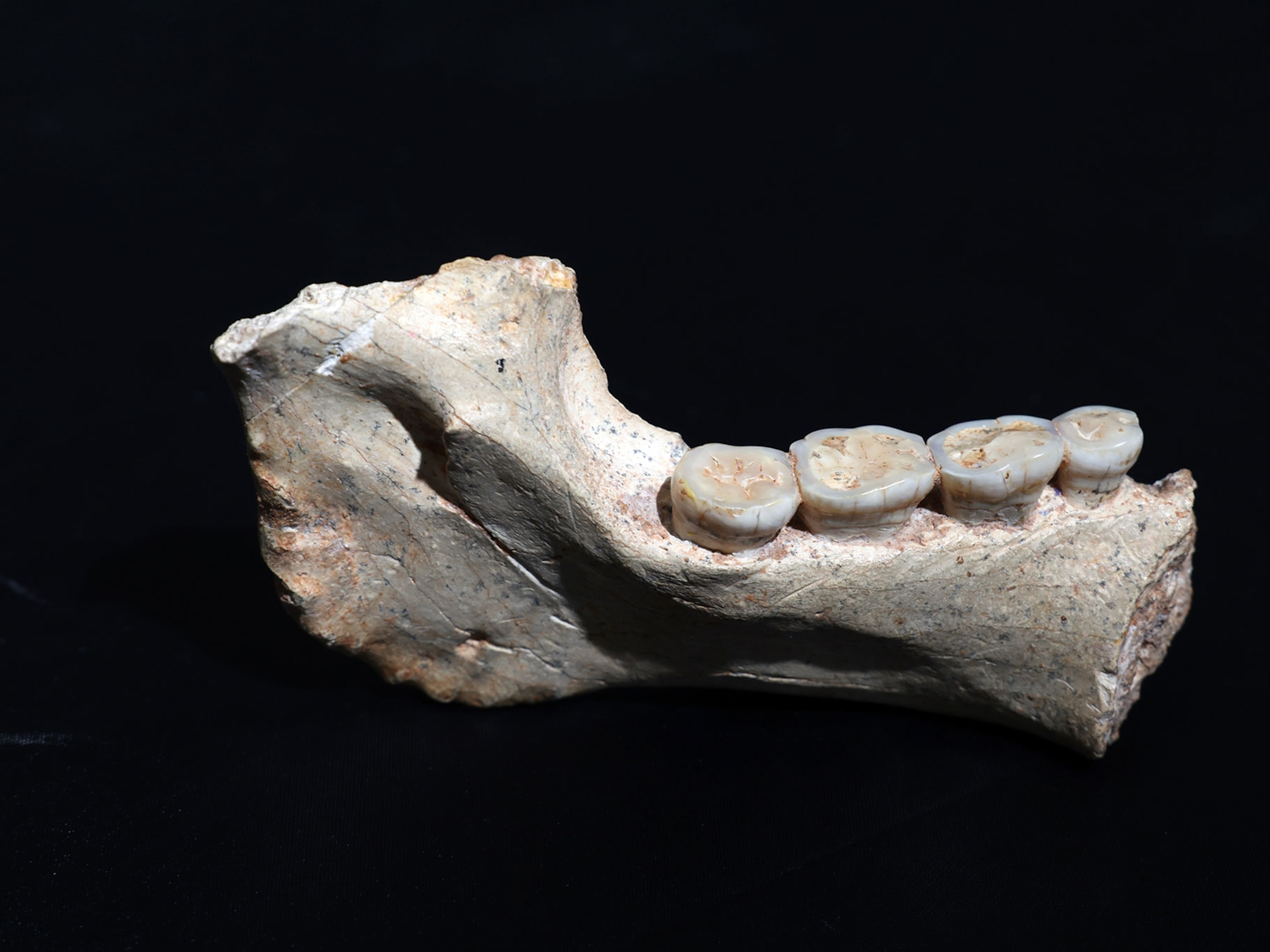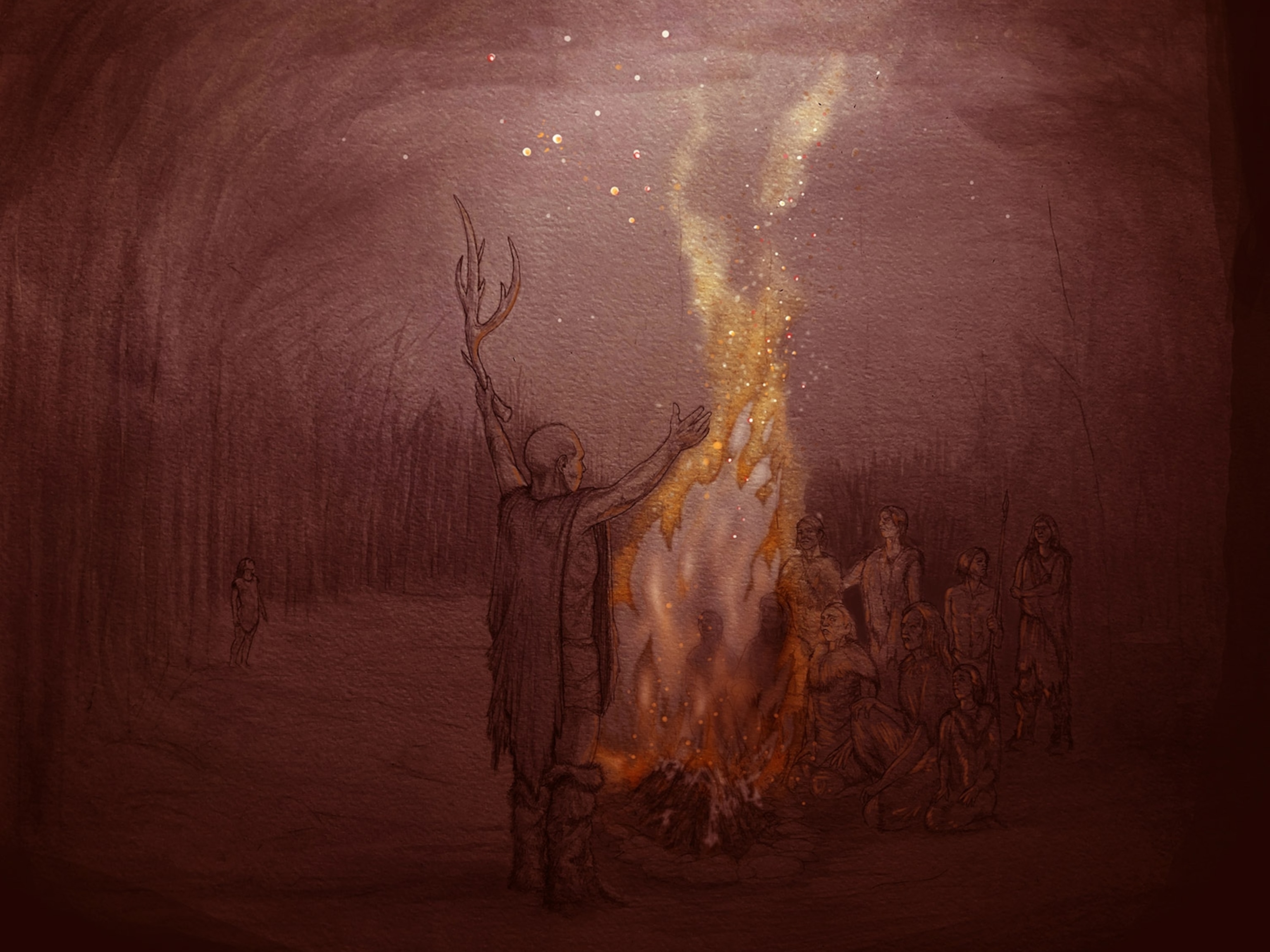
Ancient Incest Uncovered in Neanderthal Genome
Data from fossil toe bone points to surprising interbreeding among early humans.
Data obtained from a Neanderthal woman's toe bone points to incest and inbreeding among early humans, an international genetics team reported on Wednesday.
The fossil's genetic map, or genome, reported from Denisova cave in Siberia's Altai Mountains dates to more than 50,000 years ago. The cave was home at separate times to both Neanderthals and the so-called Denisovans, two sister families of now-extinct early humans. (See also "New Type of Ancient Human Found.")
Adding to increasing evidence of a tangled human family tree, the new Neanderthal genome study released by the journal Nature also suggests that another previously unknown archaic human species shared its genes with some of our ancestors. The study authors suggest that it was Homo erectus, one of the earliest human species, which first arose around 1.8 million years ago. (See also "Why Am I a Neanderthal?")
The report, led by Germany's Kay Prüfer of the Max Planck Institute for Evolutionary Anthropology in Leipzig, builds on recent prehistoric genetics results that argue against theories that modern humans arose completely from one "out of Africa" migration more than 60,000 years ago that spread worldwide without mating with other early humans.
Instead, it looks like early modern humans sometimes mated with archaic human cousins they met along the way. People of non-African origin broadly have genes that are 1.5 percent to 2.1 percent Neanderthal, according to the study, with proportions higher among Asians and Native Americans. Similarly, 5 percent of the genome of people of Australian and Papua New Guinea descent looks Denisovan, as does 0.2 percent of the genes of people from Asia.
"We don't have one ancestral group, but proportions of ancestral groups," says computational biologist Rasmus Nielsen of the University of California, Berkeley, who was not part of the study team. "I think they make a convincing argument."
"In my view, this paper heralds the completion of the Neanderthal genome project in terms of mapping an entire genome," says paleontologist and human origins expert Richard Potts of the Smithsonian's National Museum of Natural History in Washington, D.C. "That's pretty cool science."
Kissing Cousins
In 2010, the study's toe bone first turned up at Denisova Cave, where excellent fossil preservation conditions had allowed for the genetic mapping of the then-surprising Denisovan finger bone found in 2008. Gene tests showed the toe belonged to a Neanderthal, and Prüfer and colleagues began calculating its full genetic map.

The results show that it belonged to a woman whose closely matched chromosomes suggest that her parents were closely related, perhaps half-siblings or an uncle and niece (or aunt and nephew).
This incest finding "is more of an anecdote," says evolutionary biologist Mattias Jakobsson of Sweden's Uppsala University, who was not part of the study. "The more interesting observation would be if this mating behavior was common among Neandertals and/or Denisovans compared to [early modern humans] at that time," he said by email.
Over time, such inbreeding has been shown to be bad for the genetic fitness of most species, including people, throughout the animal world.
Comparison of the Neanderthal genome with a previously sequenced Denisovan one shows that both early species were far more limited, scattered, and isolated than early modern humans.
The study raises the possibility that both species were on their way to going extinct before early modern humans arrived on the scene.
Better Genes Borrowed
The findings suggest that Neanderthals and Denisovans split off from earlier human species around 600,000 years ago and split from each other perhaps 400,000 years ago.
The accuracy of the Neanderthal genome actually allows the researchers to proclaim that the Neanderthal found in Denisova Cave is less closely related to modern people than to a Neanderthal found at a site in the Caucasus.
Only 96 genes responsible for making proteins in cells are different between modern humans and Neanderthals. Intriguingly, some of the gene differences involve ones involved in both immune responses and the development of brain cells in people.
More Ancient Ancestor
"The suggestion of gene flow from Homo erectus to Denisovans is also interesting," says Potts. "I think the evidence of this event is mounting."
In the study, the authors report their evidence from a deep comparison of the new Neanderthal genome and the Denisovan one.
While Denisovans are more closely related to Neanderthals than modern humans are, as much as eight percent of their total genome comes from a "super archaic" (in Prüfer's words) early human species at least 900,000 years old, most likely Homo erectus.
"The promise of vastly growing knowledge about what distinguishes people today from Neanderthals, and other extinct cousins, mirrors people's interest in what makes them tick and what they pass on genetically," Potts says.
"Frankly, I'm delighted by the idea that people can begin to think about themselves as connected to other species, extinct smart bipeds different from themselves."
Follow Dan Vergano on Twitter.



